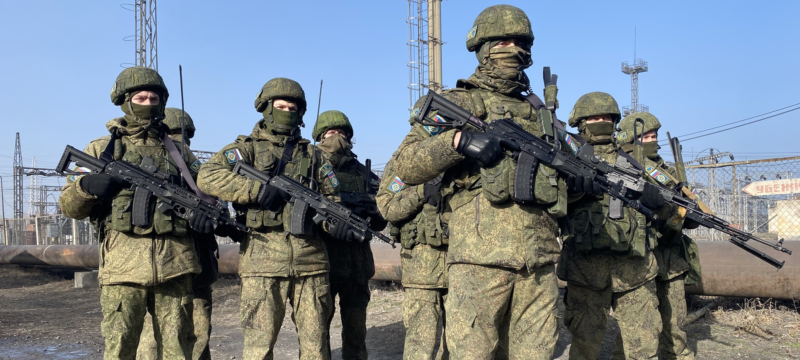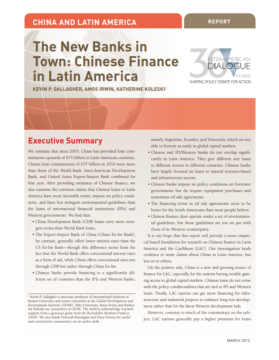Europe Might Take Another Step Back
If Spain fails to have the Common Position lifted or if it succeeds and Havana again turns down European economic cooperation, then Cuba wins once more.
A Daily Publication of The Dialogue
Russian Deputy Foreign Minister Sergei Ryabkov said on Jan. 12 that Russia is neither confirming nor excluding the possibility of sending military actors to Latin America and the Caribbean—particularly Venezuela and Cuba—if the United States and its allies continue to put pressure on the country. U.S.-Russia tensions have been rising in recent weeks due to an escalating dispute over Ukraine and the expansion of NATO. In recent years, Russia has utilized Latin America and the Caribbean as a strategic region and an opportunity to demonstrate hard power, providing military equipment to various countries. How has Russia’s influence in Latin America and the Caribbean grown in recent years, and what countries in the region have the strongest ties to the Kremlin today? How willing is Russia to disturb the relationships between the United States and countries widely considered to be authoritarian in the region, including Cuba, Nicaragua and Venezuela?
Alexander Belezeko, representative of the Embassy of the Russian Federation in Washington: “Our cooperation with the region has stood the test of time and is developing dynamically on a pragmatic non-ideological basis. Latin America remains for us an area of political goodwill, economic opportunities, cultural proximity and similar mentality. We do not confront partners with the dilemma of who to be friends with. Indeed, we maintain kind relations with the overwhelming majority of countries in the region. The number of governments that are interested in preventing their foreign policies from falling victim of the so-called Monroe Doctrine, to which Washington still adheres, is ever-growing. We note healthy trends toward the strengthening of nationally oriented forces throughout the region. It is categorically wrong to claim that Russia is willing to disturb relations between Cuba, Nicaragua and Venezuela and the United States. On the contrary, we supported the attempt to normalize relations between Washington and Havana during President Barack Obama’s tenure. It is important that such processes run on the basis of mutual respect. We see the intention of Caracas to restore normal relations with the United States. We are against barriers; we advocate building bridges. Regarding NATO, the main points of the Russian proposals to Washington and the Alliance members are the unacceptability of the expansion of NATO eastward, the non-deployment of strike weapons in the vicinity of the Russian borders that may pose a threat to the territory of the Russian Federation as well as a rollback of the NATO military infrastructure to the 1997 positions. Given the fact that verbal promises made by Washington on this matter have been violated we are now demanding legally binding guarantees.”
Vicki J. Huddleston, retired U.S. ambassador and former chief of the U.S. Interests Section in Havana: “Russia’s influence and presence in Cuba grew exponentially when then-President Trump closed former President Obama’s opening of the island. Following the Soviet Union’s fall, Russia ended its $5 billion in annual assistance and withdrew most civilian and military personnel. China, Europe and the United States became Cuba’s principal sources of trade and investment. The United States provided substantial support to Cuban private entrepreneurs through its people-to-people travel program and sold millions in agricultural products. There was essentially no important Russian presence until Trump imposed a hardline policy, ending most travel, trade and bilateral talks on everything from human rights to immigration and anti-narcotics cooperation. Trump and his allies also blamed Cuba for what has now become known as the Havana Syndrome. Cuba, looking for support, turned to Russia, which seized the opportunity to regain its influence within Cuba and to expand its military presence in Venezuela. Consequently, Cuba now has close relationships in both countries that would allow it to establish a larger military presence that could potentially threaten the United States. Russian re-entry in the region could have been avoided by continued U.S. engagement in Cuba. The fundamental question is: would President Putin take the risk of putting in military forces that could threaten the United States in either or both countries? Right now, it seems unlikely. It is disturbing that he could do so if U.S.-Russia relations deteriorate further. If Putin decided to take the risk, I believe he would focus on Venezuela. It is geographically farther from the United States and would appear to many observers as less threatening. Further, any threat coming from Cuba would provide the Cuban-American diaspora a rationale to advocate for U.S. invasion. Certainly, the lessons of the missile crisis are likely to remind both countries that they do not wish to face another nuclear–or even non-nuclear crisis–over Cuba.”
Fabiana Perera, adjunct professor at Georgetown University and non-resident fellow of the Modern War Institute at West Point: “Russia’s influence in Latin America has grown steadily in the diplomatic and security spheres, though its economic ties pale in relation to other competitors. Russia maintains 18 embassies in Latin America and the Caribbean. Russia has also been expanding its diplomatic presence through visits and official engagements: whereas Yeltsin never made a visit to Latin America in his eight years as president, Putin has visited Argentina, Brazil, Cuba, Nicaragua and Venezuela. Russia amplifies its engagements through RT en Español, which it launched in 2009. The channel provides 24-hour news coverage to 10 countries in the region. On the defense side, Russia has also grown its role as an arms exporter into the region. The relationship is unbalanced though: while Russia is a key arms purveyor to Cuba, Nicaragua and Venezuela, the region as a whole accounts for less than 15 percent of Russian arms exports. Russia also engages in other security cooperation activities with countries in the region, including establishing (and then closing) training centers and participating in combined air maneuvers. Russia’s relationship with Cuba, Nicaragua and Venezuela is strong enough for the threat of the deployment of ‘military actors’ to be credible. This is a consequence of Russia’s investment in the region over the past decade, a time that has seen the United States focus most of its efforts elsewhere, to its own detriment. Latin America is important to the security of the United States. More than its ‘backyard’ or ‘neighbor,’ the region represents the country’s near-abroad. As such, outcompeting near-peers, including Russia, is key to the security of the United States.”
Douglas Farah, president of IBI Consultants: “Russia, unlike China, has deep, narrow strategic interests in a few countries in Latin America, rather than a broad regional economic and diplomatic presence. The key countries are Venezuela, Nicaragua and Cuba. In addition, the Kremlin has a robust soft-power presence in Chile through state-linked think tanks, professional associations and media such as the RT headquarters. Russian military leaders such as General Valery Gerasimov, chairman of the joint chiefs of staff, have provided a roadmap to understand the Russian strategy of confrontation with the West, where Latin America is most affected. Rather than conventional warfare, the conflict encompasses a broad spectrum of strategic activities, ranging from disinformation to economic sabotage to weapons sales, support for anti-U.S. authoritarian regimes and the operation of front groups. This strategy contemplates an enduring, multi-dimensional effort aimed at challenging U.S. dominance while expanding the Kremlin’s influence and strengthening the Russian position in Latin America within a loose anti-U.S. alliance that includes Iran and the Bolivarian Alliance, among other partners. Within this context, Putin is seeking ways to demonstrate Russia’s ability to operate in the U.S. ‘near abroad,’ as the Kremlin charges the United States does in theaters of former Soviet influence. This means Russia is willing and eager to disturb U.S. relations in the region as much as possible, given its limited resources overall and logistical difficulties. The optics of flying intercontinental bombers or docking war ships in harbors is less important than the willingness to sustain U.S. adversaries and implement unconventional methods to undermine U.S. influence and policy while seeking permanent military bases in Nicaragua and Venezuela.”
 The Latin America Advisor features Q&A from leaders in politics, economics, and finance every business day. It is available to members of the Dialogue’s Corporate Program and others by subscription.
The Latin America Advisor features Q&A from leaders in politics, economics, and finance every business day. It is available to members of the Dialogue’s Corporate Program and others by subscription.
If Spain fails to have the Common Position lifted or if it succeeds and Havana again turns down European economic cooperation, then Cuba wins once more.
Hugo Chavez, the Venezuelan president, has clearly been enticed by the Libyan drama, where his longtime friend and ally, Muammar al-Qaddafi, is under siege from rebel forces.
Estimates of the volume, composition, and characteristics of Chinese lending to the region since 2005.
 Russia’s deputy foreign minister, Sergei Ryabkov, last month refused to rule out the possibility of the country sending military actors to Latin America. Members of Russia’s military are pictured. // File Photo: Russian Armed Forces.
Russia’s deputy foreign minister, Sergei Ryabkov, last month refused to rule out the possibility of the country sending military actors to Latin America. Members of Russia’s military are pictured. // File Photo: Russian Armed Forces.
